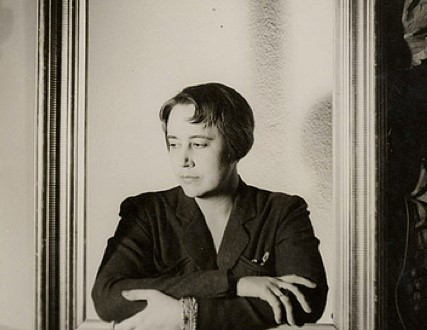This Day In History: May 20th
Cuban-born writer Lydia Cabrera entered the literary scene during the 1930s and spent her career sharing stories about the richness of Afro-Cuban culture. Cabrera published more than a dozen books throughout her life and her work continues to be celebrated by new generations.
Considered a major figure in Cuban literature, Lydia Cabrera was born on May 20, 1899, in Havana, Cuba. She was the youngest of eight children born to a financially and socially privileged family prior to the revolution. Her father was Raimundo Cabrera Bosch, a writer and activist for Cuban independence. Her parents’ status afforded the family many African servants who were instrumental in introducing Lydia to African folklore.
The family’s servants were able to relay stories of voyages to Cuba via the Middle Passage. They often told stories about African traditions, religions, folklore and mysticism. In addition to being influenced by the stories from the family servants, Cabrera was influenced by her father and it showed in much of her work.
In 1927, she went to study art and religion in Paris where she remained for 11 years before returning to her native country. While in Paris, Cabrera published “Cuentos Negros de Cuba” (“Black Stories from Cuba,” 1940), which was a collection of more than 20 folktales. She returned to Cuba and published “¿Por Qué?” in 1948. It was a collection of folklore from the formerly enslaved Cuban population. She published one of her most popular pieces, “El Monte,” (The Forest) in 1954. The book was regarded as a “bible” for Santeros who practice Santeria. The practice blends aspects of Catholicism and traditional African religions.
Cabrera’s stories often incorporate magic, Yoruba deities, the supernatural, and personified animals. Despite gaining traction as a literary figure, at the time of the Cuban Revolution Cabrera was forced to flee the country. She went into exile and traveled to Spain first before going to the United States. Cabrera spent most of her time in the U.S. living in Miami.
Following her exile, she continued to live in Miami and publish more books such as “La Sociedad Secreta Abakuá: Narrada por Viejos Adeptos” (“The Abakuá Secret Society: As Revealed by Former Members,” 1970) and “Supersticiones y Buenos Consejos” (“Superstitions and Good Advice,” 1987). Lydia Cabrera died on September 19, 1991.
Originally posted 2021-05-20 12:30:00.








